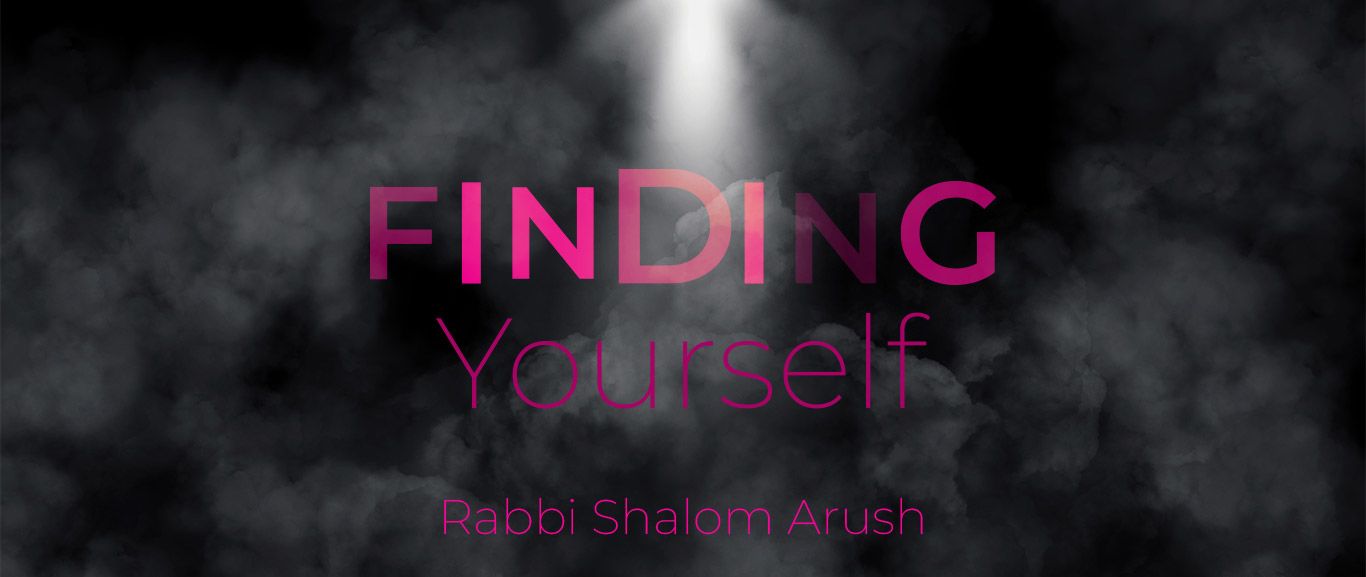
Finding Yourself
Are we aware of the dangers in life? Are we aware of our weaknesses and where we are most prone to temptation? One who doesn't see danger is the most vulnerable...

Why is Shavuot, the holiday of our receiving the Torah anew each year, so important? Without the Torah, a person is lost in the world, like being in a jungle or a strange country without a map.
To fulfill our respective missions on earth, we must know where we’re going. If a person wants to reach his destination on the spiritual map, he must first know his current position. Without knowing where you are, you can’t know where you’re going. But to do that accurately, you first have to find Hashem.
A person must be truthful with himself, for then he’ll find Hashem easily, as King David promises, “Hashem is close to all who call Him, to all who call Him in truth” (Psalm 145:18). There must be no daylight between a person’s mouth and his heart.
The Gemara tells us that one who prays must keep his eyes looking down (tractate Yevamot, 105b). This means that a person must not pray from imagined spiritual levels above his head, but rather pray in humility, even below his actual level.
One who prays in truth clings to Hashem, for Hashem is absolute truth. The Midrash tells us that truth is Hashem’s signet ring; the slightest deviation represents total counterfeit. A person who clings to truth  therefore walks in the way of the Creator and resembles Him.
therefore walks in the way of the Creator and resembles Him.
Let’s ask ourselves a question: Why did King David say, “Hashem is close to all who call Him, to all who call Him in truth”? Couldn’t he have said simply, “Hashem is close to all who call Him in truth”?
There are two levels of truth: there are the pious whose only concern is truth, and Hashem in turn answers them immediately, sometimes even before they ask. The prophet referred to this group when he said, “Even before he calls Me, I will answer him” (Isaiah 65:24). These are the ones King David alluded to when he said, “Hashem is close to all who call Him”. But, there is a lower level of truth-seekers who have not yet arrived at the level of piety where all they care about is truth. King David referred to this latter group when he said, “…to all who call Him in truth”. They still have some polishing to do in order to reach the core truth.
Let’s clarify this concept with several examples:
A person sits down to the dinner table. He is fully aware that he has a lust for food, but as soon as he takes the first bite, he is no longer any different from a hungry lion or rhinoceros. His awareness should be enough for him to seek Hashem’s help in eating like a human being, in moderation, while avoiding detrimental foods in both quality and quantity. He shouldn’t fool himself; he should speak to Hashem saying, “Hashem, help me view eating as a part of my Divine service and not as a lust to be satiated. Help me eat properly, to be able to serve You in health and not to simply indulge myself. Let me believe that You give a person strength, so that I won’t eat so much. Help me avoid any and all junk food, and to eat only what’s healthy for the body that in Your fantastic mercy, You have given me.”
Suppose a different person loves to sleep; he has a “one-way bed” – he lies down, but he can’t get up. he should pray to Hashem to help him sleep no more that the required hours for his good health and strength. He should beg Hashem to help him overcome his use of sleep as an escape, for excessive physical sleep leads to spiritual slumber. He should seek Hashem’s assistance in being able to fly out of bed in the morning with renewed vigor.
Many can’t overcome their desire to look at women. Such a person should honestly admit to himself that he has a problem rather than trying to justify himself by ridiculing guarding one’s eyes and personal holiness as excessive and eccentric. He should stop fooling himself and admit that he enjoys looking at women. He must plead with Hashem, “Hashem, save me! I don’t have the power to divert my glance, much less close my eyes in the first place. Give me the power to do your will! Let me have the desire to look only at my wife. Help me rid myself of this devastating base desire.” Without such candor, there’s no way a person can improve.
Let’s move on to the anger-prone individual. He must acknowledge that his temper flares as soon as things don’t go the way he wants them to. He must admit that he loses patience with his wife and children for the slightest reason. But, if he lives in a fantasy world, he’ll deny that he ever gets angry at all. Such a person must honestly evaluate himself, identify his own shortcomings as best as he can, and earnestly seek Hashem’s help.
Apply the above line of thinking in the examples at hand to any problem you might need help in overcoming. As soon as things are difficult for us, it’s a sign that we need to turn to Hashem in prayer. And guess what – Hashem answers.
Happy Shavuot!











